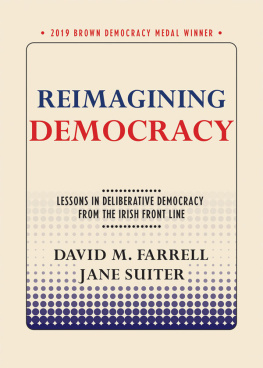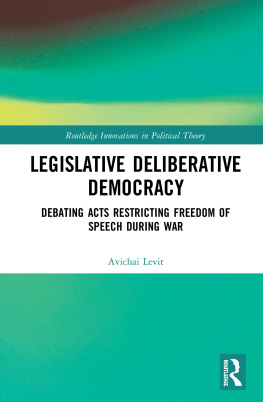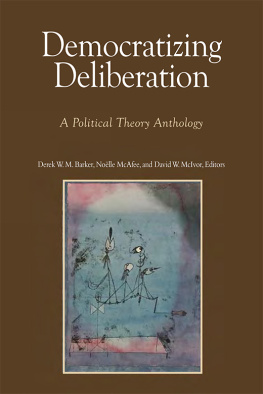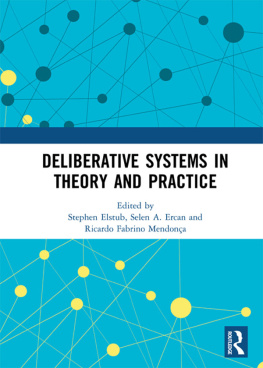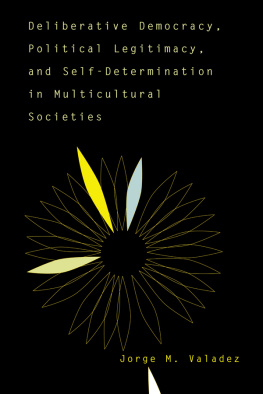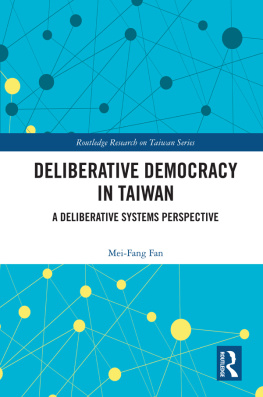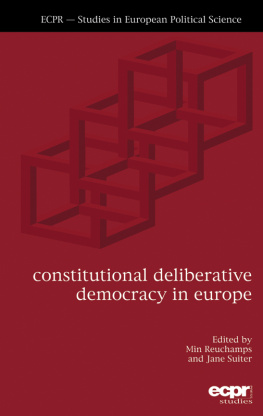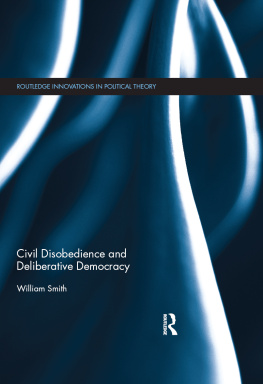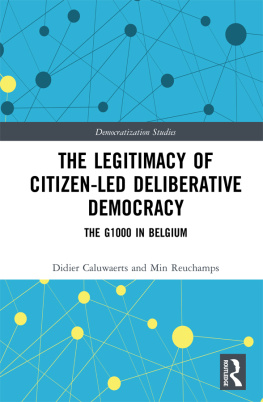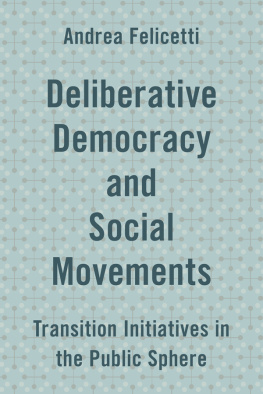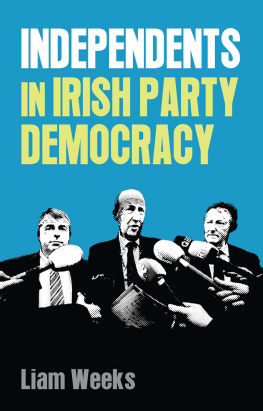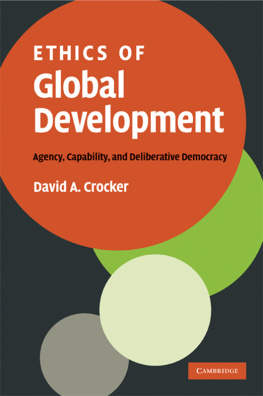McCourtney Institute for Democracy
The Pennsylvania State Universitys McCourtney Institute for Democracy (http://democracyinstitute.la.psu.edu) was founded in 2012 as an interdisciplinary center for research, teaching, and outreach on democracy. The institute coordinates innovative programs and projects in collaboration with the Center for American Political Responsiveness and the Center for Democratic Deliberation.
Laurence and Lynne Brown Democracy Medal
The Laurence and Lynne Brown Democracy Medal recognizes outstanding individuals, groups, and organizations that produce exceptional innovations to further democracy in the United States or around the world. In even numbered years, the medal spotlights practical innovations, such as new institutions, laws, technologies, or movements that advance the cause of democracy. Awards given in odd numbered years highlight advances in democratic theory that enrich philosophical conceptions of democracy or empirical models of democratic behavior, institutions, or systems.
REIMAGINING DEMOCRACY
LESSONS IN DELIBERATIVE DEMOCRACY FROM THE IRISH FRONT LINE
DAVID M. FARRELL AND JANE SUITER
CORNELL SELECTS
an imprint of
CORNELL UNIVERSITY PRESS
Ithaca and London
Introduction
On a wet Friday evening in June 2011, we were standing in the lobby of a hotel located in the suburbs of Dublin. Months of hard work traveling around the country promoting the idea of a new Ireland had led to this momentthe start of Irelands first national citizens assembly. In the previous weeks we and our colleagues had been working the phones, talking with the 150 citizens who had been selected randomly by a market research company. The venue for the Citizens Assembly was ready to go; our trained facilitators were in the hotel bar making last moment preparations; the media had been notified to turn up the next day. This was the key moment for our We the Citizens project. We were as ready as we could possibly bethe anxious question in our heads was whether our citizens would show up on a wet night. The fact that our Citizens Assembly weekend coincided with a Neil Diamond concert hadnt helped. Hotel rooms across Dublin were as rare as hens teeth that weekend, which was why we ended up using a hotel and location that were not, by any stretch of the imagination, our first choice. Gradually, people started arrivingin ones, and twos, and then larger numbers. They were made up of a diverse mix of young and old, a few students, quite a few who had never been to university, a couple of farmers, one elderly gent with a smile on his face that never seemed to fadepeople from the four corners of Ireland. We counted them in, ensured they had a drink, and prayed theyd stay. In the end one hundred showed uptwo thirds of our target figure, but just enough to allow us to proceed. Any fewer and we would have been in difficulty.
Background
The images of Ireland adorning the pages of the worlds newspapers in recent years have been of a progressive, tolerant country: young people celebrating liberal referendum victories, waving rainbow flags in the front courtyard of Dublin Castle. Those watching these referendumswhether conservative or liberal, disappointed or euphoricwere aware that these crowds portrayed a fundamental shift in values. Ireland was becoming a most unlikely poster child of progressive values. Division that had long haunted a society based largely on a strict interpretation of the Catholic Churchs values were being swept away. In an extraordinarily short time, Ireland was transforming itself, embracing values unthinkable only a decade earlier. So, what had happened? Can Irelands experience provide any lessons for other countries seeking change, a reduction in polarization, and a healing of divisions?
Our story can begin in any number of placesin the drafting of the conservative Catholic constitution in 1937, in the years of austere social values, in the abuse scandals which emerged in the 1990s and 2000s, and, crucially, in the crisis following the Great Recession of 2008. After all, crisis is often a great innovator. As Churchill remarked, Never let a good crisis go to waste. The steps that Ireland took amid the heat of that crisisseeking to build trust, listen to the people, and engage in open and constructive dialogueprovided the impetus for change. Perhaps parts our story will even sound familiar to readers elsewhere in the world.
In 2009, Ireland was in the midst of an existential crisis: a severe recession was combined with a series of bank failures and the arrival of the troika (the International Monetary Fund, European Union, and European Central Bank) to bail out the country under strict terms and conditions. Unemployment increased rapidly, more than doubling from 6.5 percent in July 2008 to 14.8 percent in July 2012, despite renewed waves of emigration. Demonstrators flooded the Dublin streets, though unlike in Athens and elsewhere where the troika had had to intervene, Irelands protests remained mostly nonviolent. Unsurprisingly, an Irish Times MRBI poll found that public trust in the government had fallen to 10 percentalmost the lowest of the twenty-nine countries in the EU, with only Hungary, Latvia, Lithuania, and Greece returning lower degrees of trust. Only a year earlier, that number was 46 percent, when Ireland was still enjoying unparalleled economic wealth during its era as the Celtic Tiger.
Seeing their economic circumstances collapse and feeling the pinch of austerity measures, the public pointed the finger of blame at the government. Political cynicism was rife. When the beleaguered government had finally run its course, the public voted them out of office; the 2011 general election was the most dramatic election result in the history of the state. An opinion poll survey commissioned by the main Irish broadcaster (RT) sought to understand the main reasons citizens voted the way they did. In large part, those reasons boiled down to a feeling of being let down by politics and politicians.
Of course, declining trust in institutions and in politics is not unique to Ireland, nor to countries exercising severe recession. The indicators are familiar enough: Fewer of us are bothering to vote in elections. Among those who do vote, there are dramatic shifts from one party to another and increasingly from the moderate ranks to the extreme fringes. Demagogic political candidates are at the fore, and where these demagogues win power, they seem determined to dismantle the fabric of our democratic institutions. In its moment of great economic jeopardy, Ireland was in grave danger of following this dismal path. Our view was that something needed to be done to reduce these risks, or to at least to mitigate their worst affects. This is the story of what we sought to do and what was achieved.





